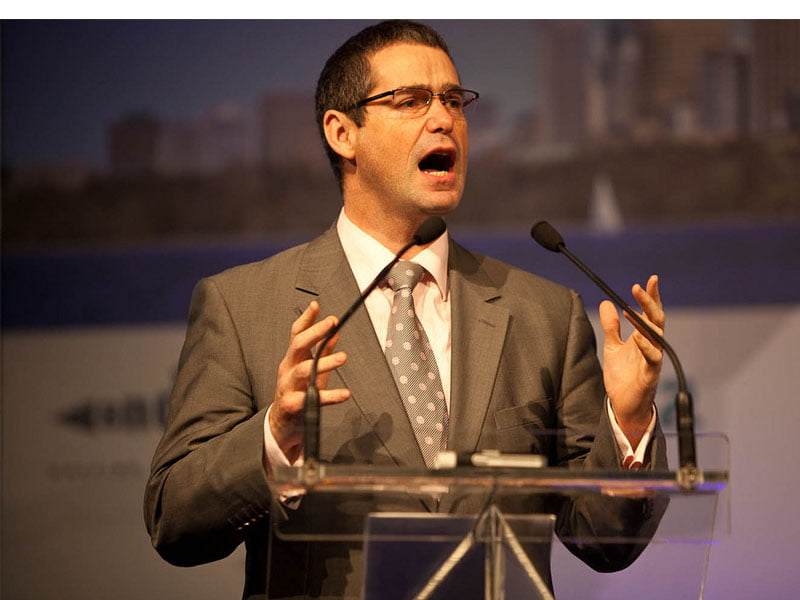With the ascension of Bill Shorten to the most thankless job in Australian politics and the naming of the new shadow ministry, the shape of Labor in opposition has become a little clearer.
We may not yet have a date for the new parliament’s first day of sitting, but with the exception of the composition of senators from Western Australia – and importantly for tech industry watchers, the fate of the conscientious Greens communications spokesman Scott Ludlam – at least we know who will be sitting in the seats. More on Ludlam later.

We also know who’s going to be sitting on the Opposition frontbench, even if we won’t find out which portfolio each will carry until Friday.
In tech industry terms, Bill Shorten was probably the more attractive candidate to lead Labor, to the extent that it makes any difference.
At face value, he is slightly less ideological and slightly more technocratic than Anthony Albanese on issues like the tax treatment of employee share options, the 457 visa program, and the further development an Australian venture funding sector.
Fulfilling the NBN mandate
But as important as these issues are to the squeaky-wheel start-up end of the tech sector, the main battles will continue to be fought in the NBN trenches. And who fills the shadow communications portfolio will be critical.
Malcolm Turnbull is not physically dismantling the national broadband network, such that it is. But the series of NBN reviews he has announced – and the broom that is being swept through the company – are all about dismantling even the notion of the NBN as a Labor legacy.
It’s a terrible waste, because whatever fast broadband the Coalition government puts together will sit on the shoulders of the work already done.
Labor had an unarguable mandate to press ahead with the NBN, and the Turnbull notion that somehow only the Coalition could “save” broadband in Australia is laughable, given its flailing attempts through the Howard years to find a workable broadband policy – not to mention its disastrous handling of Telstra.
Shame about Husic
The front-runner for the shadow communications role had been Ed Husic who, to the great surprise of many, has been left out of the shadow ministry entirely. Husic’s speech to the CommsDay congress in Melbourne last week came across like a job application. He would have been well suited to the role.
Whoever takes the communications portfolio needs to be on the front foot in the political debate: not focus on the narrow minutia of network architecture, but rather paint a fuller picture of the relationship of the NBN to the digital economy.
Perhaps Anthony Albanese will retain the shadow communications role, although he would hardly be enthused by it. It should be hoped that Husic gets some kind of parliamentary secretary role looking at digital economy and ICT-related industry development issues.
And as I have argued previously, whoever takes charge of the communications portfolio should be given a licence to venture across portfolios where tech sector challenges exist – from immigration, to education, to finance and Treasury.
The other critical portfolios for the sector are finance and industry. It is anything but clear what Stephen Conroy wants to do, having spent six years on the front-line with a dagger between his teeth – but I hope he takes finance. He would keep finance minister Mathias Cormann honest, and as a senior Cabinet minister in the previous government, he knows where most of the bodies are buried. For similar reasons, Penny Wong would be great in the shadow industry role, a heartland portfolio.
Of course, we hope Bill Shorten finds a role for the perennial friend of the tech industry, Kate Lundy, who was also, inexplicably, left out of the shadow ministry (along with New South Wales MP Stephen Jones – how did he not get a place?).
It is great news that the Sydney MP for Greenway Michelle Rowland has been promoted to the ministry; she can be a strong voice from Opposition for the sector. Rowland looked like she would lose her seat until the unfortunate Liberal candidate for Greenway Jaymes Diaz shot himself in the foot. Rowland is very smart, very hard working, and has a communications regulation background.
Why Ludlam needs to survive
Finally to the Western Australian Senator Scott Ludlam, whose future in the Senate hangs by a thread, having ‘lost’ his seat by 14 votes. The Australian Electoral Commission has ordered a recount, and with such a thin margin, that could go either way.
The loss of Scott Ludlam would be a real blow. You would hate to suggest that WA voters got it wrong if he goes, but should he lose the spot, it is hard to see how they got it right.
Ludlam has been a hard-working, diligent and positive contributor in the Senate communications committees and obviously played an important role in the restructuring of communications regulation and the separation of Telstra.
It’s his more recent work in highlighting intrusive, invasive surveillance and the shredding of privacy rights that will be missed, especially in relation to the Snowden revelations about the NSA and CIA.
While the previous government stone-walled – and the then-Opposition showed no enthusiasm for – a public examination of spooky Australian activities, Ludlam’s was a fairly lonely voice. Much of what we know about Australia’s role – and much of what we learned we do not know – is the result of Senator Ludlam’s tenacity.
Hopefully he will get to keep doing what he does best.
This story was first published at TechnologySpectator.com.au
Photo Credit: by Kim Davies via http://bit.ly/1gr9fWq
Do you know more? Contact James Riley via Email.

